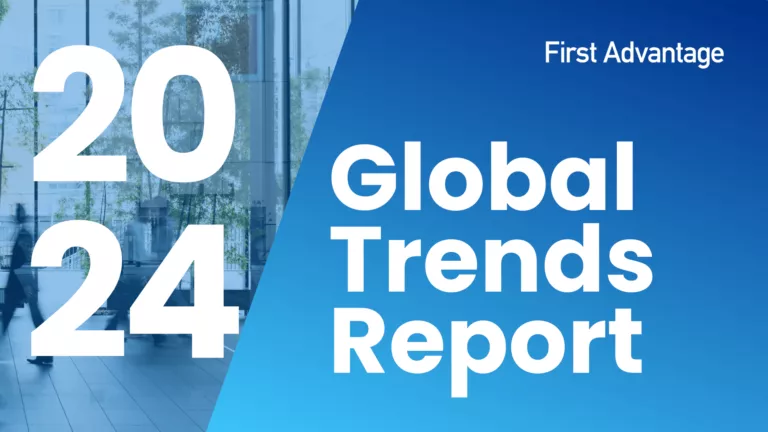The Federal Railroad Administration (FRA) recently shared guidance to railroads and interested organizations concerning drug and alcohol testing during the COVID-19 emergency in its Emergency Relief Docket through responses to Petitioner Requests:
To review the FRA’s responses to various petitioners concerning requested waiver from Part 219 requirements go to:
Below is an example of the response to one such petition concerning drug and alcohol testing: https://www.regulations.gov/document?D=FRA-2020-0002-0032
However, please note that it is important to review the thirteen requests that address this topic. Similarly to the other DOT Agencies, the FRA references the March 23, 2020, Department of Transportation (DOT) Office of Drug and Alcohol Policy and Compliance (ODAPC) Guidance on Compliance with Drug and Alcohol Testing Requirements:https://www.transportation.gov/odapc/compliance-with-dot-drug-and-alcohol-testing-regulations
This letter responds to Petitioners’ request for relief from certain Part 219 provisions. For reasons discussed below, FRA is denying the request, but FRA notes that Part 219 provides railroads with a certain amount of flexibility in implementing Part 219 programs in situations such as those presented by the current COVID-19 pandemic, and provides implementation guidance.
RANDOM ALCOHOL AND DRUG TESTING
On March 23, 2020, the Department of Transportation (DOT) Office of Drug and Alcohol Policy and Compliance (ODAPC) issued DOT Guidance on Compliance with Drug and Alcohol Testing Regulations (“ODAPC Guidance”) to provide clarity on DOT drug and alcohol testing requirements given concerns about Coronavirus Disease 2019 (COVID-19). (See
https://www.transportation.gov/odapc/compliance-with-dot-drug-and-alcohol-testingregulations.)
The ODAPC Guidance indicates that DOT-regulated employers must comply with applicable DOT testing requirements, which include FRA’s alcohol and drug testing regulations at Part 219. Consistent with the ODAPC Guidance, FRA is denying Petitioners’ request for waiver of the random testing requirements. Nevertheless, the ODAPC Guidance acknowledges that compliance with regulations such as Part 219 may not be possible due to various COVID-19-related concerns, and directs employers to “applicable modal regulations” that might apply in situations where testing cannot be completed.
FRA believes the following Part 219 provisions provide flexibility to a railroad* that is unable to complete a random testing collection for COVID-19-related reasons:
- 49 C.F.R. § 219.615(f), Incomplete collections. “A railroad must use due diligence to ensure that a random testing collection is completed for each selected pool entry, unless it has an acceptable explanation for not conducting the collection. All reasons for incomplete collections must be fully documented and are subject to inspection by FRA upon request.”
If a railroad believes it has an acceptable COVID-19-related reason for not conducting a random testing collection, it must document that reason, which is subject to FRA inspection. Except for situations where a railroad has acted in bad faith, FRA will exercise its discretion not to take enforcement action if a railroad used due diligence to complete a random testing collection, but was unable to do so for documented COVID-19-related reasons.
- 49 C.F.R. § 219.613(f), Increasing random selections. “A railroad that is unable to complete a collection for each selection made during a designated testing period may increase the number of selections in a subsequent selection period to ensure that it meets the annual minimum random testing rate for the calendar year.”
If a railroad is unable, due to COVID-19-related reasons, to complete testing for each selection in a testing window, the railroad may increase the number of selections in a subsequent selection period to help ensure that it meets the 2020 minimum annual random testing rate.
- 49 C.F.R. § 219.613(c)(1), Minimum random testing rate. “Each railroad must distribute random tests reasonably throughout the calendar year and make sufficient selections to ensure that each random testing pool meets the Administrator’s minimum annual random testing rates as established according to §219.625.”
If a railroad schedules additional random test collections later in 2020 for COVID-19-related reasons and the railroad documents its schedule and the COVID-19-related reasons, FRA would consider this a reasonable distribution of random tests to ensure that the railroad meets the minimum annual random testing rate for 2020.
- 49 C.F.R. § 219.617(a)(3), Railroad responsibility. “A railroad may excuse an employee who has been notified of [his] or her selection for random testing only if the employee can substantiate that a medical emergency involving the employee or an immediate family member (e.g., birth, death, or medical emergency) supersedes the requirement to complete the test. A medical emergency is defined in this part as an acute medical condition requiring immediate emergency care. To be eligible for exclusion from random testing, the employee must provide verifiable documentation of the emergency situation from a credible outside professional within a reasonable period of time (e.g., a doctor, dentist, hospital, law enforcement officer, or school authority). A railroad may not test an employee who has been excused from testing under the same random selection.”
For purposes of § 219.617(a)(3), any one of the following are examples of situations FRA would consider a medical emergency superseding the requirement to complete a random testing collection:
- An employee who has a positive COVID-19 test result;
- An employee who has been tested for COVID-19 and is awaiting the test result; or
- An employee who is exhibiting symptoms of COVID-19.
As a reminder, a railroad may only subject an employee to random testing when the employee is on-duty and subject to performing regulated service. See 49 C.F.R. §§ 219.12(c) and 219.615(c)(1). An employee who is off-duty for COVID-19-related reasons may not, therefore, be called on-duty for the purpose of random testing.
Finally, consistent with the ODAPC Guidance, employees should be encouraged to discuss any COVID-19-related random testing concerns with their employing railroads. FRA joins ODAPC in suggesting that railroads respond to employee concerns in a sensitive and respectful way.
This discussion is not intended to be a complete description of either the ODAPC Guidance or Part 219 requirements. For further discussion on COVID-19 and DOT drug and alcohol testing requirements, please consult the ODAPC Guidance.
TIME LIMIT REQUIREMENTS FOR ALCOHOL AND DRUG TESTING
Petitioners also request that the existing time-limit requirements for post-accident, reasonable cause, and reasonable suspicion drug and alcohol testing be adjusted to 12 hours. These requirements are found in 49 C.F.R. § 219.203(d)(1) for post-accident testing, § 219.305(b) for reasonable suspicion testing, and § 219.407(b) for reasonable cause testing. FRA is denying Petitioners’ request for the reasons discussed below.
Post-Accident Testing
Regarding Petitioners’ request to extend the time-limit requirements for post-accident testing, FRA notes these requirements are found in § 219.203(d)(1), which does not establish a definite deadline for conducting post-accident testing. Rather, § 219.203(d)(1) states that “specimens are provided as soon as possible after the accident or incident, preferably within four hours.” If specimens are not collected within four hours, they “must be collected as soon thereafter as practicable.” The only temporal cutoff is found in § 219.203(e)(3), which states that an employee “may not be recalled for testing if more than 24 hours have passed since the qualifying event.”
FRA is denying Petitioners’ request because post-accident testing must always be completed, regardless of delay (except that an employee may not be recalled for testing if more than 24 hours have passed since the qualifying event). Granting Petitioners’ request for a 12-hour deadline would therefore impose a deadline for post-accident testing where one does not currently exist. Furthermore, in the context of post-accident testing, the public interest supports obtaining available toxicological testing information, regardless of delay in obtaining specimens. See 54 FR 39646-39645 (Sep. 27, 1989).
Reasonable Suspicion Testing
- 49 C.F.R. § 219.301(a) Mandatory reasonable suspicion testing. “Each railroad must require a regulated employee to submit to a breath alcohol test when the railroad has reasonable suspicion to believe that the regulated employee has violated any prohibition of subpart B of this part concerning use of alcohol. The railroad’s determination that reasonable suspicion exists to require the regulated employee to undergo an alcohol test must be based on specific, contemporaneous, articulable observations concerning the appearance, behavior, speech, or body odors of the employee. A Federal reasonable suspicion alcohol test is not required to confirm the on-duty possession of alcohol.”
- 49 C.F.R. § 219.301(b) Mandatory reasonable suspicion testing. “Each railroad must require a regulated employee to submit to a drug test when the railroad has reasonable suspicion to believe that the regulated employee has violated the prohibitions of subpart B of this part concerning use of controlled substances. The railroad’s determination that reasonable suspicion exists to require the regulated employee to undergo a drug test must be based on specific, contemporaneous, articulable observations concerning the appearance, behavior, speech, or body odors of the employee. Such observations may include indications of the chronic and withdrawal effects of drugs.”
- 49 C.F.R. § 219.305(a) Prompt specimen collection; time limitations. “Consistent with the need to protect life and property, testing under this subpart must be conducted promptly following the observations upon which the testing decision is based.” As noted above, FRA is denying Petitioners’ request. As shown by the § 219.301(a) requirement for “contemporaneous” observations and the § 219.305(a) requirement to complete reasonable suspicion testing “promptly,” testing for potential on-duty impairment is time-sensitive. For example, allowing up to 12 hours to lapse after a determination to test would allow additional metabolization of any ingested alcohol. If a railroad cannot complete a reasonable suspicion test within the current 8-hour deadline, as required under § 219.407(b), for COVID-19-related reasons, the railroad must document why in accordance with § 219.305(b). As with random testing, FRA will exercise discretion to not take enforcement action if a railroad exercised good faith and due diligence to complete the collection.
Reasonable Cause Testing
FRA reasonable cause testing is authorized, but not required. A railroad that chooses to conduct a reasonable cause test should determine at the time of its decision whether a collector or other necessary resources will be available. If a railroad is unable to complete a reasonable cause collection within the current 8-hour deadline for COVID-19-related reasons, the railroad must document why in accordance with 49 C.F.R. § 219.407(b). Because reasonable cause testing is not required, a railroad failing to complete a reasonable cause collection within the § 219.407(b) timelines will not be subject to FRA enforcement action.
CONCLUSION
FRA looks forward to working with you to help ensure the continued safety of railroad operations during this national emergency. The point of contact for further questions on COVID-19 and FRA alcohol and drug testing is Mr. Gerald Powers, FRA Drug and Alcohol Program Manager. Mr. Powers can be reached at 202-493-6313 or Gerald.Powers@dot.gov.
* These provisions also apply to railroad contractors and subcontractors conducting FRA random alcohol and drug testing.

 京公网安备 11010502052956号
京公网安备 11010502052956号

